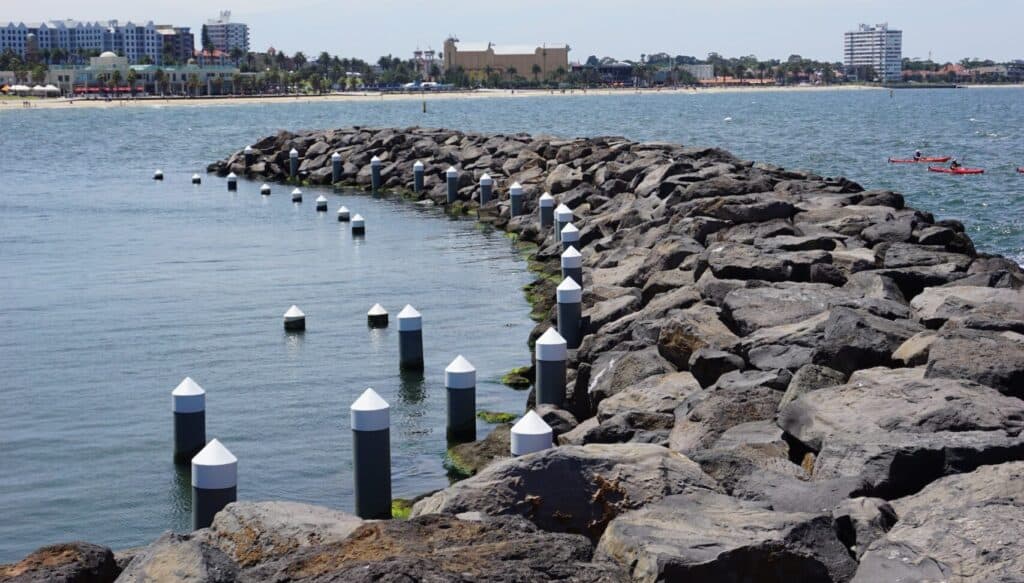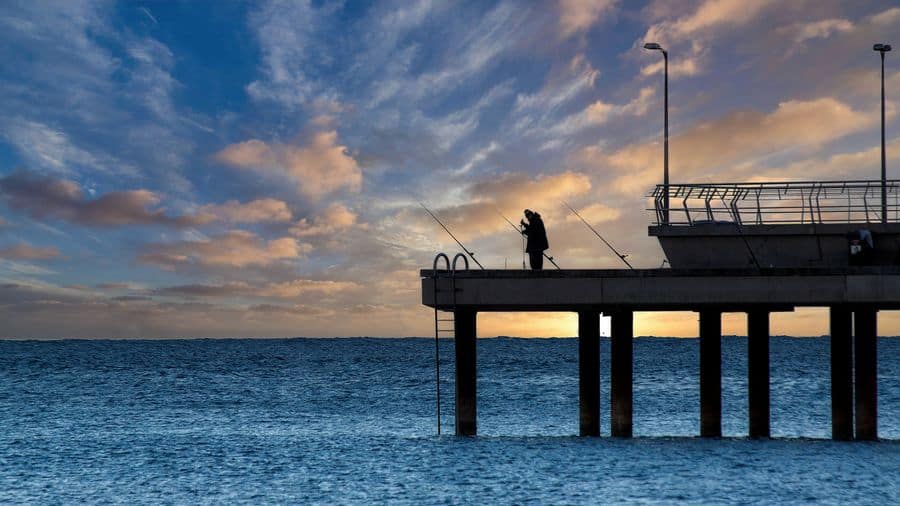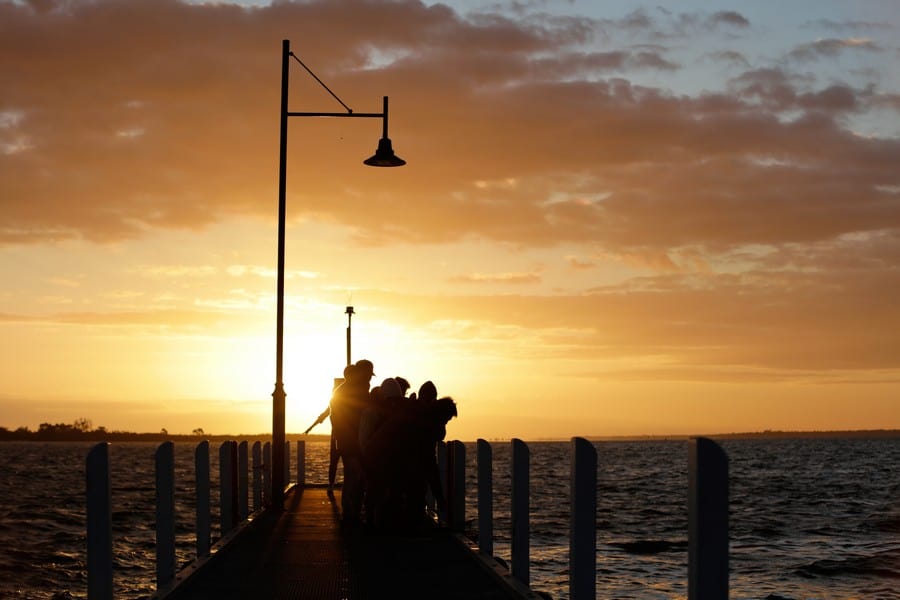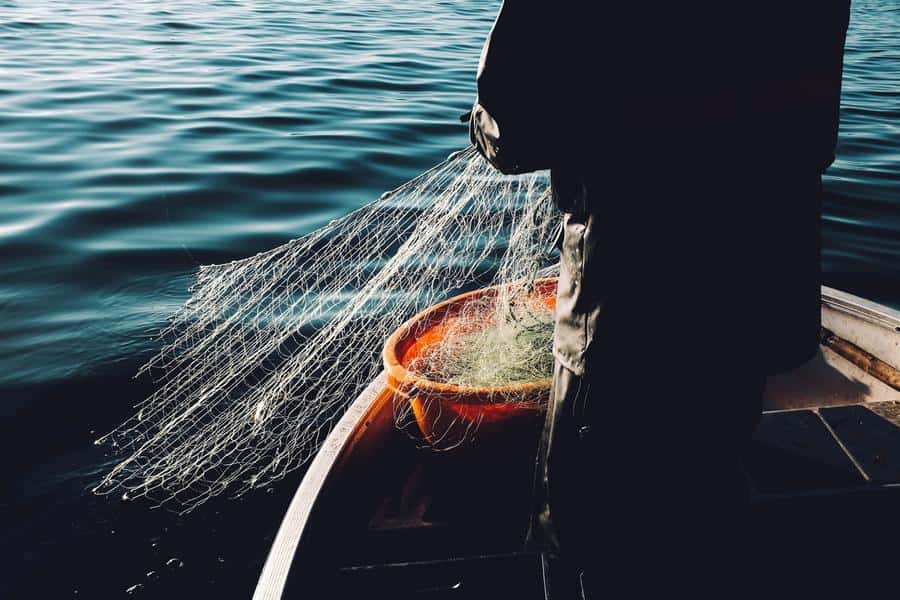Recreational fishing in many parts of Victoria requires a licence that enables you to have fun while legally carrying out your non-commercial fishing activities. However, there’s often a lot of confusion about which groups of people have to carry a licence while fishing, especially Aboriginals. Is a licence needed by Aboriginals to fish in Victorian waters?
Aboriginals do not need a fishing licence in Victoria. The Victorian Fisheries Authority permits Aboriginals to fish in Victoria without a licence strictly for non-commercial purposes. This is because the government recognizes Aboriginal Australians as the original Victorian settlers.
The rest of this article will explain aspects of this arrangement in more detail, including why this exemption exists for Aboriginals and other categories of people exempted from needing a fishing licence in Victoria. Keep reading!

Why Aboriginals Don’t Need A Fishing Licence In Victoria
The requirement of a fishing licence was scrapped for Aboriginals as a form of reparation for injustice suffered by their forefathers. As the original inhabitants of Australian land, Aboriginals fished in Victorian waters for tens of thousands of years ahead of British settlement.
Due to this long-standing societal history, they have a strong cultural and emotional connection to the water bodies in Victoria and its aquatic animals.
After colonisation in 1788, Aboriginal lands were forcibly seized by British settlers. Many of the groups violently lost their customary right to freely fish in Australian waters as their communities were massacred and impoverished.
As colonisers and non-indigenous Australians gained greater power and took over governance, indigenous Australians were even more repressed. In the 1900s, government policies backed the removal of Aboriginal children from their homes.
The children’s names were changed as they were banned from speaking their native language and taken into foster families and other institutions.
Over the years, the Aboriginals were further separated from the lands and waters they had developed strong connections. In the early 2000s, the Australian government formally apologised to the Aboriginals and started to work towards undoing the damage that had been done to the cultural heritage of indigenous Australians.
to the Aboriginals and started to work towards undoing the damage that had been done to the cultural heritage of indigenous Australians.

Who Are Aboriginals?
Aboriginal Australians refer to the first set of people to settle on Australian land and their descendants. The legal definition of Aboriginality states that an Aboriginal must identify as a relation of one of the groups indigenous to Australia and be accepted as such by their community.
The term “Aboriginal people” broadly refers to about 750,000 people who formed more than five hundred First Nation groups over 60,000 years before British colonisation. The many ethnic and cultural distinctions have been separated into two major classes over time:
- Torres Strait Islanders are the descendants of the original inhabitants of the Torres Straits Islands
 . This group of islands is now part of Queensland, but many Torres Strait Islanders have migrated to Victoria and other parts of Australia.
. This group of islands is now part of Queensland, but many Torres Strait Islanders have migrated to Victoria and other parts of Australia. - Aboriginal people are all other descendants of the indigenous people who lived in Australia before the arrival of the British in 1788.
Both classes of Aboriginal people do not need a licence for non-commercial fishing in Victoria.
How Licence Exemption Applies To Aboriginals
While Aboriginals do not need a fishing licence in Victoria because they are duly recognized by state authorities as the original settlers, the nature of the exemptions differs. There are different laws backing their licence exemptions, all of which give different privileges and restrictions.

Exemption Due To Identification As An Aboriginal Or Torres Strait Islander
Everyone who identifies as an Aboriginal or Torres Strait Islander has the freedom to fish without a licence. This exemption only covers fishing for non-commercial purposes, though. To catch fish for sale in Victoria, an Aboriginal person must also obtain a licence.
For non-commercial recreational fishing, the fishing regulations that apply to all other recreational fishers will apply to Aboriginals. These regulations limit variables such as:
- Bag and size limits
- Permitted equipment
- Restrictions for fishing waters
- Safety requirements
- Species-specific regulations
Exemption Under The Native Title Act Of 1993
Native Titles were set in law by the Commonwealth Native Title Act of 1993 based on the rights of indigenous Australians according to traditional laws and customs. The title refers to the legal recognition of the rights and interests of Aboriginals and Torres Strait Islanders in their land and water.
were set in law by the Commonwealth Native Title Act of 1993 based on the rights of indigenous Australians according to traditional laws and customs. The title refers to the legal recognition of the rights and interests of Aboriginals and Torres Strait Islanders in their land and water.
Unlike regular Aboriginal identification rights, Native Titles are claimed, not granted. To claim a recognized native title, an Aboriginal will have to appear before the Federal Court of Australia as part of a Traditional Owner group.
In addition to the licence-free privileges of identifying as an Aboriginal, the Victorian Fisheries Authority permits Aboriginals holding a Native Title in a Traditional Owner group to fish without all the restrictions of recreational fishing laws. However, they’ll have to follow general fishing laws for recreational and non-recreational fishing.
Despite these freedoms, an Aboriginal with a native title isn’t allowed to catch fish in Victoria for any commercial purpose.
Exemption Under The Traditional Owner Settlement Act Of 2010
The Victorian Traditional Owner Settlement is related to the claim of a Native Title. The difference here is that the Traditional Owner settlements are majorly for out-of-court settlements. Traditional Owner groups are coalitions of Aboriginal Australians that collaborate with the Victorian government to bridge the social gap against indigenous Australians.
is related to the claim of a Native Title. The difference here is that the Traditional Owner settlements are majorly for out-of-court settlements. Traditional Owner groups are coalitions of Aboriginal Australians that collaborate with the Victorian government to bridge the social gap against indigenous Australians.
Members of these Traditional Owner groups that have a settlement agreement from the group can fish in Victoria without a licence. Like other Aboriginals, they have to obey all recreational fishing rules. However, the rules for members of these groups can change at any time they meet with the Victorian Fisheries Authority to review their restrictions.

Other Categories Of People Exempted From Having A Fishing Licence
Besides Aboriginals and Torres Strait Islanders, there are other groups of people who can fish in Victoria without a licence. These groups include:
- Children less than 18 years with a free fisher card.
- Older people above 70 years with a free fisher card.
- A holder of a Victorian Senior Card or an Interstate equivalent.
- A Veteran’s Affairs Pensioner.
- A Third-Party Intermediary-Coded Repatriation Health Card Holder.
- A Commonwealth Pensioner Concessions Card Holder.
Conclusion
Outside the various categories mentioned, you would have to purchase a licence for recreational fishing in Victoria. You can buy a Victorian Fishing licence for three days, twenty-eight days, one year, or three years.
for three days, twenty-eight days, one year, or three years.
Your licence choice depends on what suits your needs best, but all types of fishing licences are affordable and easy to obtain. Happy fishing!
More Pages On Other Areas
Vacations are fun and can be a wonderful way for couples to spend quality time together. As a couple spends time together, they create memories to cherish forever. However, one question often arises:...
Beach camping is a dream vacation for any traveller. The idea of camping under the stars with the sound of the ocean lulling you to sleep sounds like it comes straight out of a fairytale. Rainbow...


